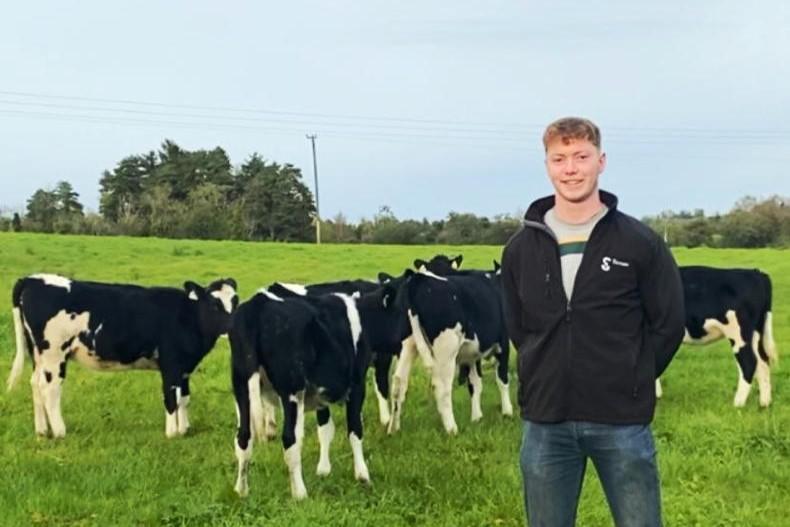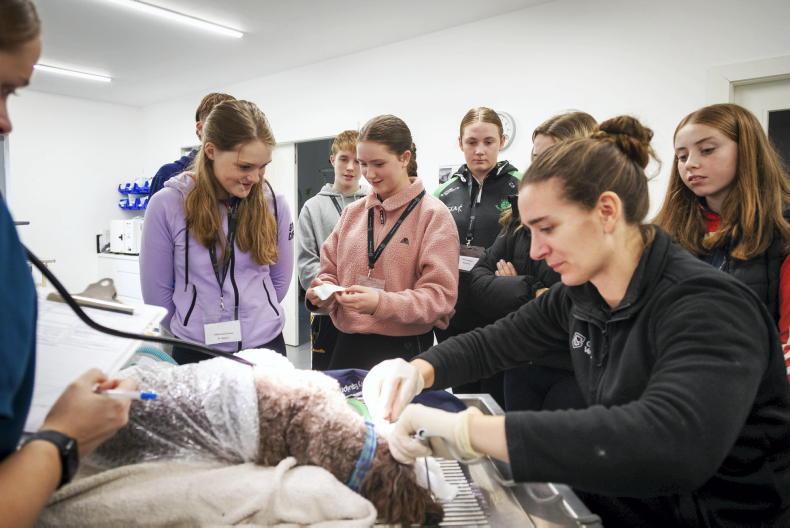Given the opportunity to spend a year out of your usual routine trying new things, making new friends, building your confidence and maturing; would you take it?
That is the decision faced by many third year students who have the chance to bridge the gap between junior and senior cycle by taking a transition year (TY). 74% of students who entered third year in September 2020 did just that and went on to enrol in TY in 2021.
If optional, it’s a choice for your teen to make and as such requires discussion and careful consideration.
“Transition year can be the best year of school life for many students as it offers an array of different experiences; very different from any other year in school,” says Máirín Harding, aged 16, who is welfare officer for the Irish Second-Level Students’ Union (ISSU).
Costs and considerations
However, the cost of TY can be a very real barrier to participation for some students, often running to hundreds of euros for the year. Added to that, many schools offer a trip abroad at a significant additional cost.
“For some families, that is a huge burden and makes it very difficult if a child decides they’d like to do it and of course there’s always peer pressure,” says Róisín Kelleher, guidance counsellor for over 35 years.
As such, it’s important to understand in advance what to expect. Many schools offer an information evening in third year to go through the TY programme, so be sure to attend this.
“Ask the TY co-ordinator if you have any questions about finances, trips and projects your child can take part in,” Máirín advises.
TY may be perceived as a “doss year”, with absenteeism amongst students increasing as the year progresses.
“If they have the opportunity to do transition year, they should respect that, attend and understand it isn’t a casual educational process where they could turn up whenever they like and it doesn’t matter,” says Róisín.
Overall, transition year is a very good idea. It’s a maturing year, a year of giving students an opportunity to explore other possibilities
“One hears alarming stories, sometimes, that the students got completely out of a study habit and couldn’t get back into a routine.”
That said? “Overall, transition year is a very good idea,” adds Róisín. “It’s a maturing year, a year of giving students an opportunity to explore other possibilities.”
Work experience
If your teen does decide to do TY, work experience is perhaps the most significant aspect to explore during the year.
“It is an amazing opportunity for students to find out what they like and dislike, and get a taste of the world of work,” says Máirín.
Róisín agrees, advising that the work experience should be closely aligned to the possible career or course that the student might want to pursue.
“This is a big part where the parents can play a significant role,” she adds.
If you are in a position to offer a work placement or could talk to TY students about your job, contact your local school.
“Showing interest in your child’s TY program is vital,” says Máirín. “Use any contacts you may have to make the process easier and get it done in plenty of time to avoid stress.”
The great thing about TY is that it allows students to develop their interests outside of school. Many people take up a new sport, join a new club, begin their activism journey and much more.
Primary schools, pre-schools and crèches, homes for the elderly and paediatric wards in hospitals are among some of the work experience or volunteer placements that require Garda vetting, which you need to be over 16 to complete, so take this into consideration when making your choices.
TY.ie is an invaluable resource, and includes a section on sample CVs and letters to help your teen apply for work experience or a part-time job.
“The discipline of going to a workplace and being there on time, of putting down your day and getting on with people - whether it’s in the workplace or the general public - that’s a learning situation,” says Róisín.
The discovery that their dream job turns out to be a complete nightmare is 100% valuable, too.
Róisín recommends your teen explores and re-explores the new possibilities of the senior cycle programmes and calmly asks the question “What do I want to do?” Take the opportunities to visit open days at local colleges, apprentice training centres and universities they might be interested in.
It’s important to find out what subjects are necessary for their chosen course and at what levels. Each school organises its own unique TY programme, often offering tasters of subjects available at Leaving Cert as well as reinforcing learning in Irish, English and mathematics. Having said this, “Transition year is not a three-year Leaving Cert,” emphasises Róisín.
Competitions
There are also lots of national TY competitions and TY programmes for students to take part in, from the “Certified Irish Angus Schools Competition”, giving students an opportunity to raise five Angus calves for 18 months to “Junk Kouture”, a recycled fashion competition for students to design, create and model 100% recycled high-end couture.
It’s also an opportunity to gain useful qualifications, such as first aid, manual handling and food safety certificates.
“If students take every opportunity as they come, they will be kept busy!” says Máirín.
“The great thing about TY is that it allows students to develop their interests outside of school. Many people take up a new sport, join a new club, begin their activism journey and much more.”
If your teen does bridge the gap by embarking on TY, commit to it because, put simply, you get out what you put in. CL
Read more
Parenting: please play with your food
Education: Under pressure? Parenting through exam season
Given the opportunity to spend a year out of your usual routine trying new things, making new friends, building your confidence and maturing; would you take it?
That is the decision faced by many third year students who have the chance to bridge the gap between junior and senior cycle by taking a transition year (TY). 74% of students who entered third year in September 2020 did just that and went on to enrol in TY in 2021.
If optional, it’s a choice for your teen to make and as such requires discussion and careful consideration.
“Transition year can be the best year of school life for many students as it offers an array of different experiences; very different from any other year in school,” says Máirín Harding, aged 16, who is welfare officer for the Irish Second-Level Students’ Union (ISSU).
Costs and considerations
However, the cost of TY can be a very real barrier to participation for some students, often running to hundreds of euros for the year. Added to that, many schools offer a trip abroad at a significant additional cost.
“For some families, that is a huge burden and makes it very difficult if a child decides they’d like to do it and of course there’s always peer pressure,” says Róisín Kelleher, guidance counsellor for over 35 years.
As such, it’s important to understand in advance what to expect. Many schools offer an information evening in third year to go through the TY programme, so be sure to attend this.
“Ask the TY co-ordinator if you have any questions about finances, trips and projects your child can take part in,” Máirín advises.
TY may be perceived as a “doss year”, with absenteeism amongst students increasing as the year progresses.
“If they have the opportunity to do transition year, they should respect that, attend and understand it isn’t a casual educational process where they could turn up whenever they like and it doesn’t matter,” says Róisín.
Overall, transition year is a very good idea. It’s a maturing year, a year of giving students an opportunity to explore other possibilities
“One hears alarming stories, sometimes, that the students got completely out of a study habit and couldn’t get back into a routine.”
That said? “Overall, transition year is a very good idea,” adds Róisín. “It’s a maturing year, a year of giving students an opportunity to explore other possibilities.”
Work experience
If your teen does decide to do TY, work experience is perhaps the most significant aspect to explore during the year.
“It is an amazing opportunity for students to find out what they like and dislike, and get a taste of the world of work,” says Máirín.
Róisín agrees, advising that the work experience should be closely aligned to the possible career or course that the student might want to pursue.
“This is a big part where the parents can play a significant role,” she adds.
If you are in a position to offer a work placement or could talk to TY students about your job, contact your local school.
“Showing interest in your child’s TY program is vital,” says Máirín. “Use any contacts you may have to make the process easier and get it done in plenty of time to avoid stress.”
The great thing about TY is that it allows students to develop their interests outside of school. Many people take up a new sport, join a new club, begin their activism journey and much more.
Primary schools, pre-schools and crèches, homes for the elderly and paediatric wards in hospitals are among some of the work experience or volunteer placements that require Garda vetting, which you need to be over 16 to complete, so take this into consideration when making your choices.
TY.ie is an invaluable resource, and includes a section on sample CVs and letters to help your teen apply for work experience or a part-time job.
“The discipline of going to a workplace and being there on time, of putting down your day and getting on with people - whether it’s in the workplace or the general public - that’s a learning situation,” says Róisín.
The discovery that their dream job turns out to be a complete nightmare is 100% valuable, too.
Róisín recommends your teen explores and re-explores the new possibilities of the senior cycle programmes and calmly asks the question “What do I want to do?” Take the opportunities to visit open days at local colleges, apprentice training centres and universities they might be interested in.
It’s important to find out what subjects are necessary for their chosen course and at what levels. Each school organises its own unique TY programme, often offering tasters of subjects available at Leaving Cert as well as reinforcing learning in Irish, English and mathematics. Having said this, “Transition year is not a three-year Leaving Cert,” emphasises Róisín.
Competitions
There are also lots of national TY competitions and TY programmes for students to take part in, from the “Certified Irish Angus Schools Competition”, giving students an opportunity to raise five Angus calves for 18 months to “Junk Kouture”, a recycled fashion competition for students to design, create and model 100% recycled high-end couture.
It’s also an opportunity to gain useful qualifications, such as first aid, manual handling and food safety certificates.
“If students take every opportunity as they come, they will be kept busy!” says Máirín.
“The great thing about TY is that it allows students to develop their interests outside of school. Many people take up a new sport, join a new club, begin their activism journey and much more.”
If your teen does bridge the gap by embarking on TY, commit to it because, put simply, you get out what you put in. CL
Read more
Parenting: please play with your food
Education: Under pressure? Parenting through exam season









SHARING OPTIONS